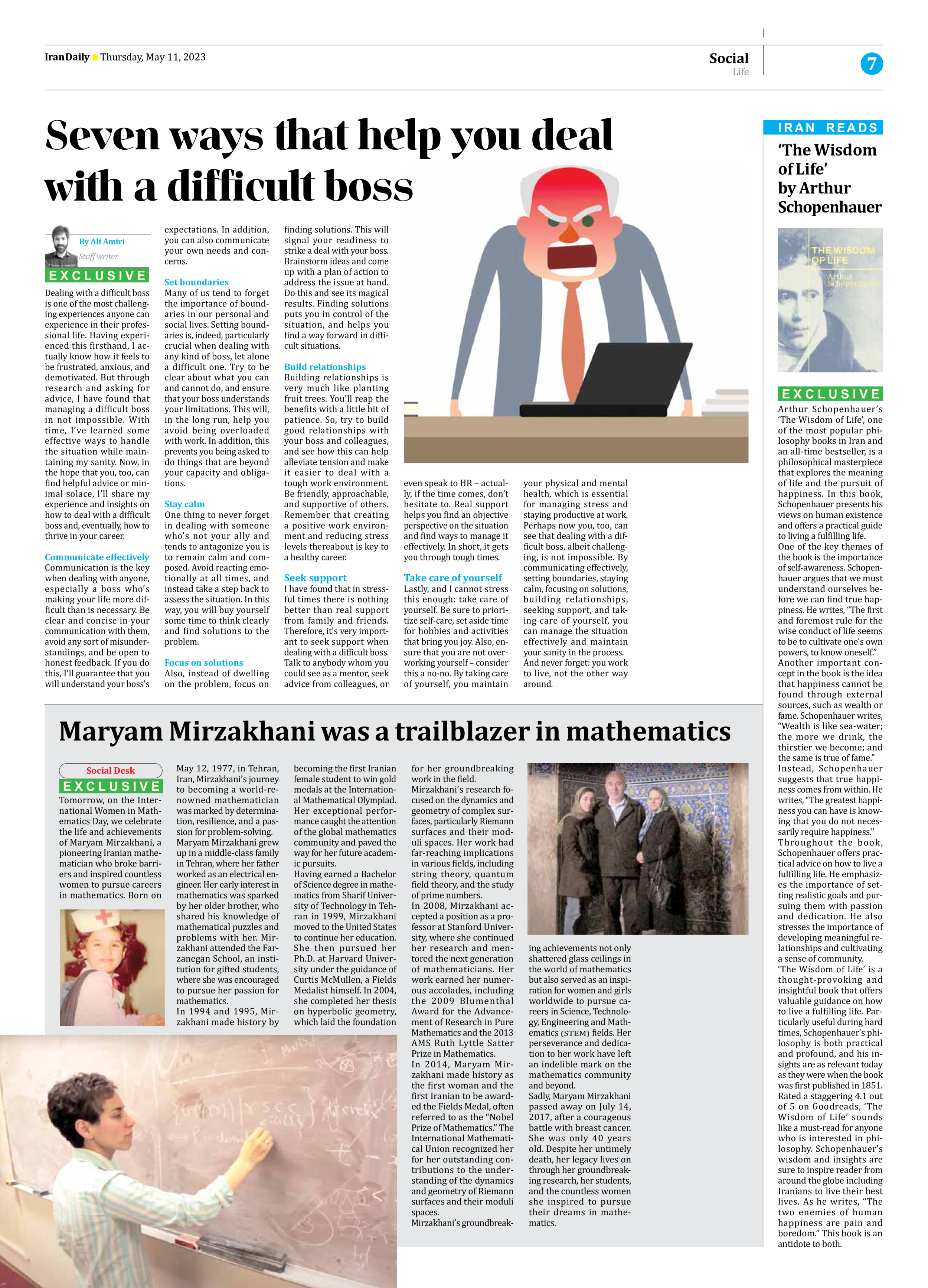
‘The Wisdom of Life’ by Arthur Schopenhauer
Arthur Schopenhauer’s ‘The Wisdom of Life’, one of the most popular philosophy books in Iran and an all-time bestseller, is a philosophical masterpiece that explores the meaning of life and the pursuit of happiness. In this book, Schopenhauer presents his views on human existence and offers a practical guide to living a fulfilling life.
One of the key themes of the book is the importance of self-awareness. Schopenhauer argues that we must understand ourselves before we can find true happiness. He writes, “The first and foremost rule for the wise conduct of life seems to be to cultivate one’s own powers, to know oneself.”
Another important concept in the book is the idea that happiness cannot be found through external sources, such as wealth or fame. Schopenhauer writes, “Wealth is like sea-water; the more we drink, the thirstier we become; and the same is true of fame.”
Instead, Schopenhauer suggests that true happiness comes from within. He writes, “The greatest happiness you can have is knowing that you do not necessarily require happiness.”
Throughout the book, Schopenhauer offers practical advice on how to live a fulfilling life. He emphasizes the importance of setting realistic goals and pursuing them with passion and dedication. He also stresses the importance of developing meaningful relationships and cultivating a sense of community.
‘The Wisdom of Life’ is a thought-provoking and insightful book that offers valuable guidance on how to live a fulfilling life. Particularly useful during hard times, Schopenhauer’s philosophy is both practical and profound, and his insights are as relevant today as they were when the book was first published in 1851.
Rated a staggering 4.1 out of 5 on Goodreads, ‘The Wisdom of Life’ sounds like a must-read for anyone who is interested in philosophy. Schopenhauer’s wisdom and insights are sure to inspire reader from around the globe including Iranians to live their best lives. As he writes, “The two enemies of human happiness are pain and boredom.” This book is an antidote to both.







